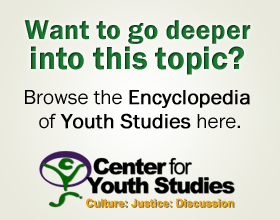Pedagogy of the oppressed.
Freire, P. (1970, rev. 1999). Pedagogy of the oppressed. New York City: The Continuum Publishing Co.
OVERVIEW
The Brazilian educator, Paulo Freire, developed a methodology for helping to empower the impoverished and illiterate. He was forced to leave Brazil for two decades before returning to Sao Paulo: he moved first to Chile, and later immigrated to the United States before returning to his home country. Having sold over 500,000 copies worldwide, Pedagogy of the Oppressed is the 20th anniversary edition.
His philosophy is that the underclass, no matter how "ignorant" they may seem, are capable of looking critically at the world. These people can gradually perceive their own personal and social reality, and transform it. He has perfected a method for teaching illiterates, providing individuals the proper tools for that transformation. Although his primary contribution is to the education of illiterate adults in the Third World, it may also be relevant to the struggles of those experiencing oppression in industrialized, developed regions. The basic message of Pedagogy of the Oppressed is that it is everyone’s responsibility to react thoughtfully and positively to his or her circumstances.
Divided into four chapters, the book addresses teaching the oppressed as well as the oppressor. The first chapter justifies the need for teaching the oppressed, explains the contradiction between the oppressors and the oppressed, and offers solutions to how oppression is overcome. The second section explains the "banking" concept of education and teacher-student contradiction. The third chapter describes the essence of education as the practice of freedom, which is dialogue. Finally, the book concludes by exploring the opposing theories of cultural action, showing how one is the instrument of oppression and the other is the instrument of liberation.
QUESTIONS FOR REFLECTION AND DISCUSSION
- What could a Third World revolutionist like Paulo Freire offer as an educator to people in the U.S.?
- What has been your experience as a student in relation to teacher/student interaction?
- Why would the oppressed need to be taught about oppression? Why would the oppressor need to be taught?
- What is the difference between "rescuing" and "empowering" the poor/oppressed?
IMPLICATIONS
- All people—especially educators—should be actively self-aware, in order to empower the oppressed with a theory of action. As long as they are crushed and oppressed, people will not be able to construct, by themselves, the theory of liberating action.
- When leaders and educators learn to learn—with the people—about the people’s world, then the theory of liberation be built.
Patricia Mitchell cCYS












Post new comment